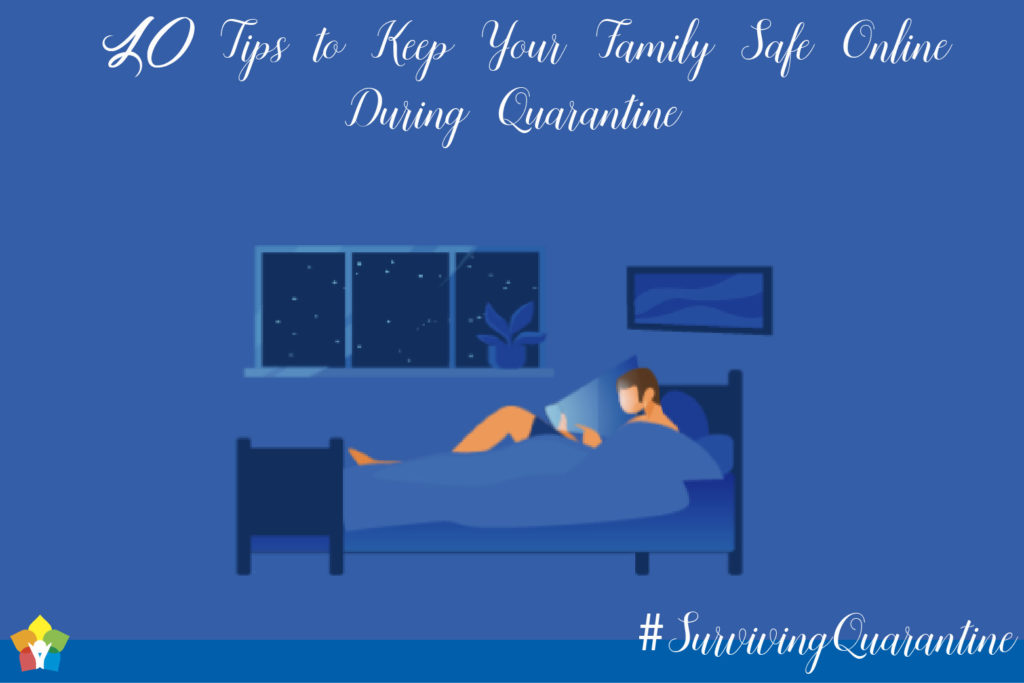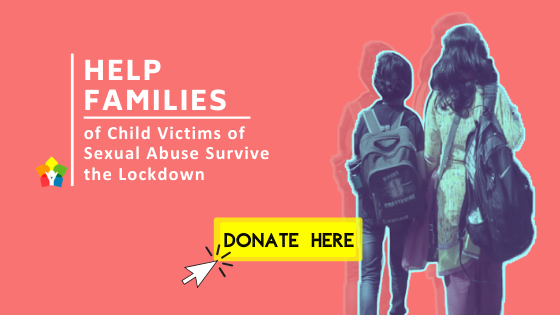10 Tips to Keep Your Family Safe Online During Quarantine

So we have reached a stage where anybody who can be online is online all the time. Timelines & notifications are working overtime and you may catch your attention span dwindling. There’s work, there’s online classes, there’s shows to binge, skills to learn, all the latest information of the pandemic to catch up on – there’s too much to stay on top off and you may be experiencing a kind of ‘neural bloat’.
Everybody needs to take that extra-bit of care in front of a screen, not just your children, even you. Before you proceed, close your eyes and count to 15.
Here’s 10 simple tips for you and your family to ensure that you are safe and healthy as you spend quarantine looking over a panorama of screens.
1. Screentime
As the good people say, what can be measured, can be managed. A good way to keep on top of your self-care is by tracking the screen times on your mobile devices. For android devices use Google Wellbeing and for iOS you may use the inbuilt ScreenTime Function. Ask your children to do the same.
2. Anhedonia
You are binge-watching listlessly. You would do something else but what else is there to do. You are mindlessly streaming, scrolling, playing podcasts into your ear but you are not really listening to it. Your mind and body feel like they are made of white noise but you can’t seem to switch off the content. If you recognize any of these symptoms in yourself or your child, you are probably going through a form of depressive anhedonia. You need to recognize this state of being and switch off your screen. Get away from it. Snap out of it. At least for an hour. Use the time to make and eat an omelette or read a book or just stare outside the window. All the content in the world will wait for you to come out of this phase.
3. Addiction
Your child’s screen times are hitting the roof. They’ve clearly gone past anhedonia. Major parts of the child’s routine have been hollowed out by screen time. The child seems to be ignoring actual physical discomfort and still continuing on their device. They tried switching off but they just could not. They start acting out when you try and separate from the screen. You should call a counsellor on a helpline. ( Call 08046110007 to get in touch with the experts at NIMHANS)
4. The Blue Light & The Disturbed Sleep Cycle
Dull the brightness of your phones. It is highly recommended that you apply a filter. If your phone doesn’t have one inbuilt, there are apps for you to choose from. The blue light is slow poison for your eyes and your sleep cycle. Stay bright and Keep it dim.
5. Safety During Video Conferencing & Online Classes
A lot of people are going to send you zoom links but it has had a spate of issues recently. Personally we prefer jit.si. Click here for a list of more secure conferencing apps.
- If your child is in a virtual room full of strangers, ask them to be careful as to not reveal any personal details like name, number, location, bank details, id card number etc.
- They need to try and stay anonymous and as far as possible use made up names and not use photographs that give away their identity.
- If they are creating passwords, make sure they are not reusing password that they use for other accounts.
- If someone is misbehaving or bullying them on private chat & other spaces, ask them to immediately report.
- If your child is really young and the child’s online classes are clashing with your work timings, negotiate with the school or the workplace. Ensure that a very young child is not alone in front of a screen.
6. Social Media Safety
So your child’s social life outside home has been disrupted by the quarantine. Social media can be a great platform for them to connect and stay in touch. They may also use it as a platform to make and share content. However, there are a few red flags for you to ask your child to watch out for especially when they are interacting in spaces where strangers have access.
- They are to be very careful with their anything that may give away their identity & location.
- If during any interaction they start feeling creeped out or uncomfortable, they should immediately break contact or report the person.
- If they ever feel coerced into situations, they should back away and immediately tell you.
- If they are hurt by even a comment tell them that they can always confide in you.
- Most importantly reassure your children that if anything happens to them online you will always be on their side and you will never blame them.
7. Chatting, Dating Apps, Sexting
It’s springtime and love blossoms in quarantine across chatting apps and dating apps. If on it, your children need to be careful about their private details and need to be vary of the creeps.
If they are on such apps and they are old enough, it would be advisable to give them a talk on safe sexting. It goes like this, in this order:
- Don’t sext
- Never sext on whatsapp. Use a secure app like signal. Learn to use the disappearing messages function.
- on’t sext in a manner that your identify can be revealed (keep your face and any other markers outside the frame)
- If something goes wrong, tell me immediately. I love you and am always going to standing with you.
8. Pornography
There has been a documented rise in the consumption of pornography during quarantine and if you have teenage children, chances are that they are stealing time and spending some of it watching porn. It’s normal at the age.
And since you have already had the sexting conversation, you’re good to go with the pornography conversation which goes
- It’s okay. It’s normal. No need to feel especially guilty.
- It’s illegal if the people in the video are underage (in which case you should report it here) and also, don’t watch those video that seem to be taken without the girl’s consent
- Porn is not real life, I hope you understand that
- Don’t watch too much of it
- Wash your hands.
9. Phishing & Financial Fraud
:With all the fluctuations and uncertainty in the wake of the quarantine, Financial Fraud & Phishing has been on the rise. And the range is quite wide – asking for donations for relief work, threatening that your online banking is going to be deactivated unless you share the OTP, urgent sounding messages that claim your best friend is in trouble and needs money urgently, fake covid-19 related links that install Trojans in your device.
Here’s what you should be doing:
- Don’t click on suspicious looking links.
- If a link leads you to a website check & cross check every character of the url to verify if it’s the real website link or a spoof
- don’t give OTPs or bank details on the Phone to anyone
- check and recheck the email ids that are sending you email
- even a merely google search of the suspicious url or email id or phone number can sometimes reveal whether its real or a fraud,
- if you are not sure about something, go with your gut feeling and ask around.
10. Don’t be The Tormenter
Even as you help your child stay safe online chances are, that your child maybe on a mean streak. So it’s also important to tell them that it’s not okay to bully, it’s not okay to stalk, it’s not okay to violate other people’s boundaries and that it is important to seek and respect their consent. Don’t do something online that you wouldn’t do to someone otherwise.
If you’re wondering why fake news wasn’t featured in this list, that’s because we have a full page dedicated to just that. Click here to check that out.
Now close your eyes and count to 15 again.
(If you like this article, please consider donating to our ongoing donation drive to Help Families of Sexual Abuse Victims in Mumbai Survive the Lockdown)








